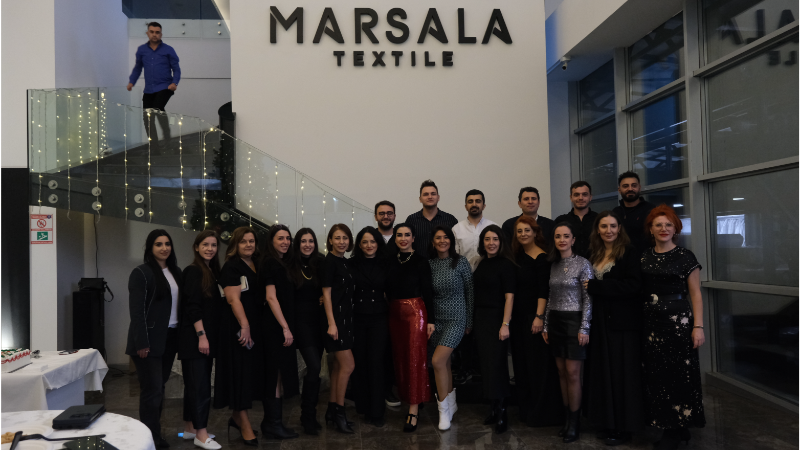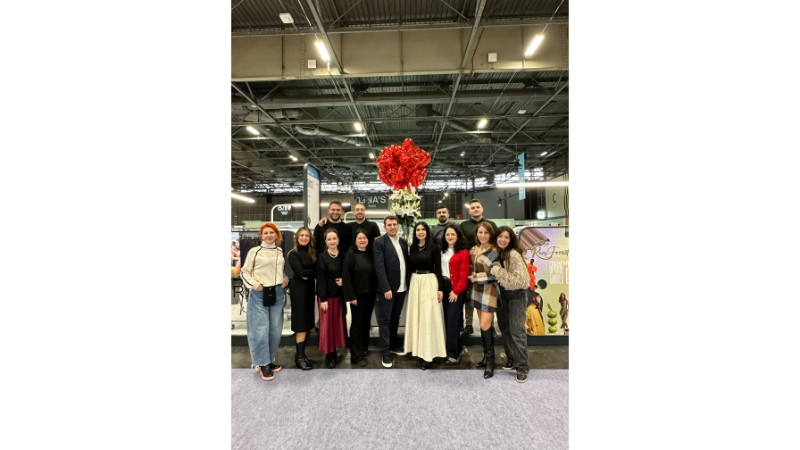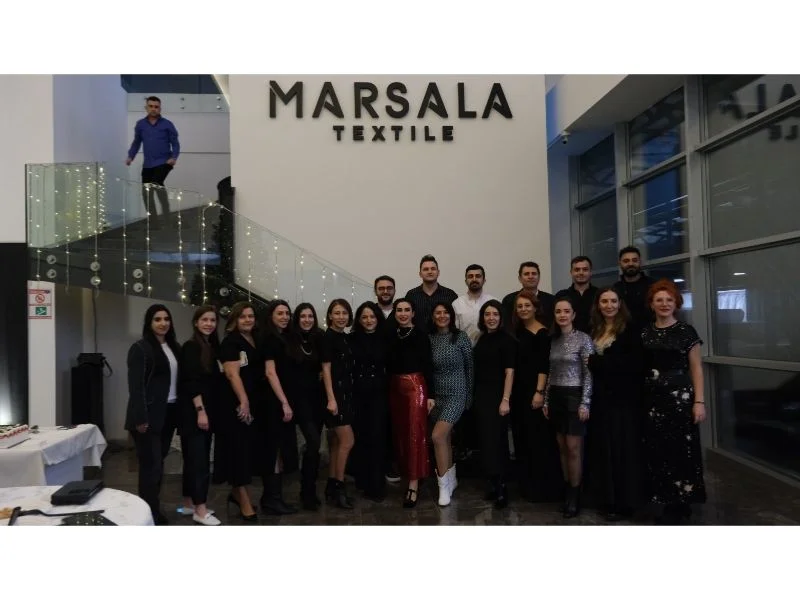Fabric factories are at the heart of the textile industry. Because these factories are not just places where fabric is produced. They are also centers where fashion trends are shaped, innovation is born, and the direction of the fashion world is determined. Equipped with modern production techniques, these facilities manufacture high-quality fabrics with great precision. They play a significant role in both the domestic market and export operations. In this sense, fabric factories contribute not only to industrial production. They also play a strategic role in the development of the national economy. In this article, we will explore how fabric factories operate, why they are preferred, and examine in detail the woven fabric manufacturers in major production centers, especially in Bursa.
Table of Contents
- What Do Fabric Factories Do?
- How Do Fabric Manufacturers Operate?
- Fabric Remnants Directly from the Factory
- Fabric Factories in Bursa
- Woven Fabric Manufacturers in Bursa
- Marsala Textile: The Address of Quality and Trust
- Frequently Asked Questions
- Conclusion
What Do Fabric Factories Do?
Fabric is the fundamental building block of a garment. Because the fabric quality directly determines many features of a piece of clothing. These include aesthetic appearance, wearing comfort, durability, and breathability. For this reason, textile brands place great importance on fabric sourcing at the very beginning of the product design process. High quality fabric is essential not only for creating stylish and functional products. It is also a key factor in increasing customer satisfaction and brand loyalty. At this point, working with reliable fabric factories becomes a vital strategic decision for brands.
Not only the final product but also the production process itself is directly related to a brand’s corporate identity. Whether the fabric is recyclable, the types of dyes used, and the water and energy consumption during production. These factors are of great importance in terms of both environmental responsibility and corporate reputation. Therefore, especially manufacturers operating in ready to wear, home textiles, industrial textiles, and technical textiles. They consider not only price and lead time when choosing fabric suppliers. They also pay close attention to production technologies, sustainability certifications, and international quality standards.
For fashion brands engaged in export, the situation is even more critical. Because competing in global markets is not only possible through design. It also requires sustainability reporting, social compliance documentation, and high fabric quality. Therefore, the technical documentation, test reports, and quality assurance processes offered by fabric factories carry significant value. In this context, fabric factories that produce high-quality textiles and adopt a sustainable production approach. They become not just suppliers but long-term solution partners for brands.

How Do Fabric Manufacturers Operate?
Fabric manufacturers produce various types of fabrics tailored to different requirements and areas of use. They consider customer demands from a wide range of industries. The production process requires not only technical knowledge. It also demands design awareness, market insight, and a strong sense of sustainability. For example, water-resistant and windproof fabrics can be developed for outerwear. Breathable, flexible, and lightweight textiles are suitable for sportswear. Eco-conscious brands may prefer environmentally friendly fabrics made from organic cotton, bamboo, or recycled yarns. Each fabric type is planned to perform appropriately for its intended application and is produced with great precision.
Fabric manufacturers carefully analyze technical specifications provided by their customers. Every detail is meticulously determined. These include the type of yarn to be used, whether the fabric will be woven or knitted, surface treatments, color fastness, and finishing processes. Before mass production begins, sample development is carried out. These samples are evaluated for technical compliance and checked against the client’s aesthetic expectations. Once approved, the production process moves into large-scale manufacturing. Each stage proceeds under the supervision of quality control teams.
Producing high-quality fabrics alone is no longer sufficient. Today, global brands place great importance on the sustainability vision of their suppliers. Factors such as energy efficiency, water consumption reduction, waste management, and recycling practices play a critical role in supplier selection. At this point, companies like Marsala Textile stand out. They operate with advanced technology in their facilities. At the same time, they focus on minimizing environmental impact. Through this approach, they establish strong partnerships by offering high-quality and environmentally responsible production to both domestic and international clients.
Fabric Remnants Directly from the Factory
Factory-direct fabric remnants offer an extremely economical and practical solution for entrepreneurs, independent designers, and boutique brands. This method eliminates the need to maintain large inventories. It allows production in smaller batches. As a result, costs are reduced and production flexibility increases. Especially for designers preparing new collections or brands producing in limited quantities. Purchasing fabric remnants accelerates the product development process and provides an ideal resource for sample or trial productions.
Additionally, buying fabric remnants offers a significant advantage for businesses aiming to keep up with rapidly changing trends in the fashion industry. Brands that frequently update their collections can quickly procure fabrics in current colors and patterns. They can do this without taking on stock risks. In processes such as sampling, test production, or preparing small-scale collections. Purchasing remnants directly from the factory saves both time and budget.
When evaluated from all these perspectives, sourcing fabric remnants directly from manufacturers. Becomes an ideal choice for professionals seeking to maintain quality. It is also a smart solution for small businesses looking for a flexible and sustainable production model.

Fabric Factories in Bursa
These factors make fabric factories in Bursa not only strategic production partners for brands within Turkey. They are also a preferred choice for global textile giants. Thanks to their success in both high-quality production processes and on-time delivery. Manufacturers in Bursa play a key role in bringing collections to life for various markets. Companies in the region preserve the traditional weaving heritage. At the same time, they embrace innovative technologies and succeed in achieving global standards in fabric production.
In addition, Bursa’s geographical location provides a major logistical advantage. Fast shipments can be made to all regions of Turkey. Export to European markets is also completed within minimal time. This significantly strengthens the competitive power of fabric factories based in Bursa. When qualified labor, strong infrastructure, experienced production teams, and modern facilities are combined. Bursa becomes not only a national leader in textile and fabric production. It also emerges as a globally influential hub in the industry.
Woven Fabric Manufacturers in Bursa
Bursa based manufacturers like Marsala Textile stand out not only in the domestic market. They also attract attention in international markets such as Europe, the Middle East, and America with their innovative textile collections. Thanks to advanced R&D efforts and modern weaving machines. They develop textiles that combine both aesthetic and functional features. They successfully meet the demands of various sectors such as fashion, home textiles, and technical textiles. As a result, woven textile manufacturers in Bursa rank among the most competitive and reliable suppliers on a global scale.
Additionally, these factories offer customized design and production services based on client requests. This provides great flexibility to brands producing collection based lines. Fast production capacity, a wide range of colors and patterns, and the use of sustainable raw materials. These are key advantages that make Bursa’s woven textile factories a preferred choice. Companies like Marsala Textile combine these strengths with advanced technology. They produce solutions that unite high quality with sustainability. In this way, woven textile manufacturers in Bursa preserve traditional weaving heritage. At the same time, they continue to lead the industry with their innovative production approach.
Marsala Textile: The Address of Quality and Trust
Marsala Textile, a trusted fabric supplier for global brands, stands out not only with its production capacity. It also distinguishes itself with high service quality, timely delivery, and customer-focused solutions. The company works closely with its clients during the collection development process. It offers textiles that are both creatively inspiring and technically strong. In doing so, it goes beyond being a supplier. It becomes a strategic solution partner that adds value to its clients’ brands.
Rooted firmly in Bursa’s long-standing textile tradition, Marsala Textile brings a fresh and innovative perspective to the industry. With its quality-driven production approach, commitment to sustainability, and continuous improvement mindset. The company not only meets today’s demands. It also helps shape the textile trends of the future. Thanks to its unique strengths, Marsala Textile has become a preferred brand in both domestic and international markets. By combining technology, design, and environmental awareness. It continues to raise the bar in the textile industry day by day.

Frequently Asked Questions
What types of fabrics do fabric factories produce?
Fabric factories produce both natural and synthetic textiles, including cotton, polyester, viscose, linen, and wool. They also manufacture technical textiles used in sportswear, medical, and industrial applications.
Is it advantageous to work directly with fabric manufacturers?
Yes. Working directly with fabric manufacturers provides significant benefits in terms of price control and quality assurance. Additionally, custom production requests can be addressed more quickly.
Is it possible to buy fabric remnants directly from factories?
Yes, it is possible. Fabric remnants, including excess production, sample fabrics, or out-of-collection stock, can often be purchased at affordable prices.
Why are fabric factories in Bursa preferred?
Bursa is known for its deep-rooted textile heritage, skilled labor force, and advanced technical infrastructure. These factors make it a reliable production center for both domestic and international brands.
Conclusion
In conclusion, fabric factories are among the unseen yet most powerful and influential players in the world of fashion. Because the quality of a garment or textile product is directly related to the fabric’s texture, which can be felt at first touch. High quality fabric production affects many aspects. From the success of a brand’s product to customer satisfaction and even its positioning in global markets.
Bursa’s fabric factories, in particular, stand out with their technical capabilities, industry experience, and commitment to quality. They are among the key production centers representing Turkey’s textile strength. At this point, Marsala Textile not only manufactures. It also contributes strategically to the industry’s development through innovation and reliability.
If you want to elevate your brand, establish a lasting presence in the market, and create a positive perception in the eyes of consumers. Working with the right fabric manufacturer is no longer optional. It is essential. Because fabric quality directly shapes brand perception. It impacts many critical stages from design to the product’s longevity. Therefore, when choosing among fabric factories. It is important to prioritize not just price. But also quality, reliability, and sustainability principles.
To learn more and explore our other content, please visit our blog. There, you’ll find inspiring insights and professional solutions related to the textile industry.

